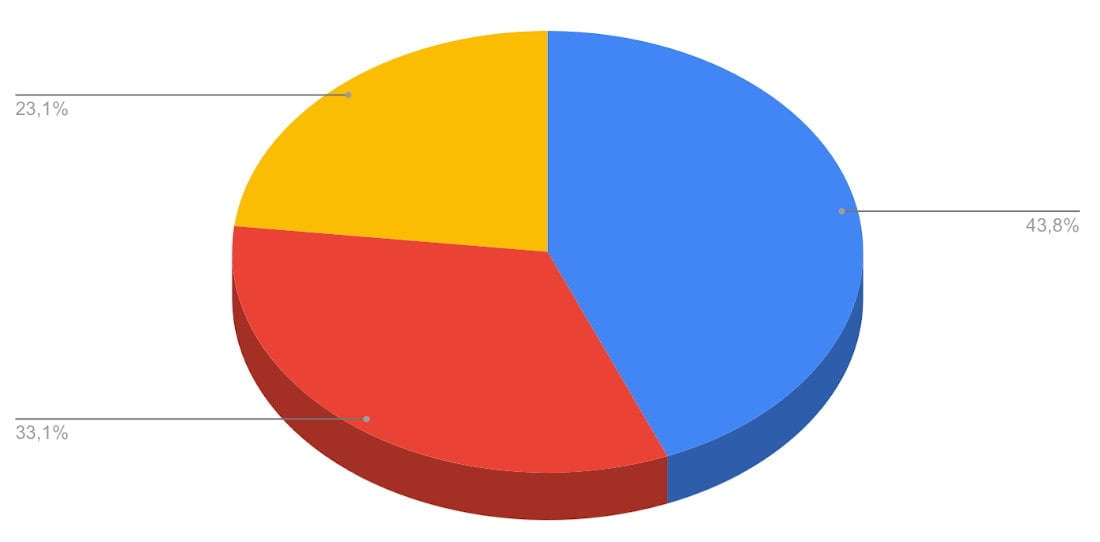
The Comprehensive Impact of Diet on Oral Health: How Different Foods and Drinks Affect Your Teeth
At Maple Dental Health, we do realize that significantly more factors affect dental health than only regular visits and cleanings. Daily food and drink choices greatly affect the strength, look, and general resilience of your teeth and gums, according to an increasing corpus of studies. In this article, we take a deep dive into the science behind nutrition and dental health, providing actionable insights to help you build the best diet for oral health — one that truly supports the best diet for teeth and a diet for good teeth.
1. The Science Behind Diet and Dental Health
1.1. Enamel Demineralization and Remineralization
Acids generated by dental bacteria attack your teeth's strong, protective outer layer, the enamel, non stop. Enamel demineralization results from the metabolism of sugars and fermentable carbohydrates producing these acids. Understanding the processes of demineralization and remineralization can help you to grasp how nutrition impacts your teeth. Remineralization, on the other hand, is the natural healing mechanism whereby minerals including calcium and phosphate — often helped by fluoride — are redeposited into the enamel.
- Key Nutrients:
- Calcium and Phosphorus: Essential for enamel repair and strength.
- Fluoride: Enhances remineralization and inhibits acid-producing bacteria.
A diet rich in these minerals forms the foundation of a diet for healthy teeth. Dairy products, leafy greens, and fortified foods contribute directly to this process, making them critical components of a good diet for teeth.
1.2. The Role of pH Balance and Saliva
Protecting against decay in your mouth depends critically on the pH balance there. Foods heavy in sugar and acid reduce the pH, therefore favouring bacterial development and enamel degradation. Conversely, saliva is a natural buffer that neutralizes acids and helps to remove food waste from the teeth.
- Saliva Stimulation: Crunchy fruits and vegetables (like apples, carrots, and celery) not only supply vital vitamins but also increase salivary flow.
- Hydration: Adequate water intake is essential for maintaining saliva flow and a neutral pH, making water an indispensable part of the best diet for oral health.
2. Key Components of a Nutrient-Dense Diet for Oral Health
Establishing a complete, yet healthy diet for healthy teeth and gums requires knowing which foods offer the best mix of nutrients to support dental structures and stop decay. Below, we explore the specific food groups and nutrients that are most beneficial.
2.1. Dairy Products: The Calcium and Phosphate Powerhouse
- Benefits:
Natural calcium and phosphates abound in dairy products including yogurt, cheese, and milk. Maintaining strong structure and remineralizing enamel depend on these minerals. - Research Insight:
Clinical studies have shown that individuals with higher dairy consumption often exhibit lower rates of dental caries, underscoring dairy’s role in a diet for teeth.
2.2. Fresh Fruits and Vegetables: Natural Cleaners and Saliva Stimulators
- Crunchy Produce:
Apples, carrots, and celery are not only nutrient-rich but their fibrous texture mechanically cleans the teeth, reducing plaque buildup. This effect is especially beneficial for those aiming for a diet for white teeth. - Vitamins and Antioxidants:
Vegetables and fruits are high in vitamin C and antioxidants, which help maintain gum health and reduce inflammation — key factors in a diet for healthy teeth and gums.
2.3. Leafy Greens: Micronutrients for Tissue Health
- Nutrient Content:
Foods high in vitamin A, C, and K as well as folate and calcium include spinach, kale, and broccoli. These micronutrients assist to preserve a good gum line and support the restoration of oral tissues. - Impact:
A diet for good teeth must include leafy greens consistently as they not only help to strengthen enamel but also to maintain general oral tissue integrity.
2.4. Nuts, Seeds, and Whole Grains: The Mineral and Fiber Sources
- Essential Minerals:
Phosphorus and magnesium abound in nuts and seeds (almonds, walnuts, chia, and flaxseeds), which in concert with calcium help to strengthen your enamel. - Whole Grains:
They provide fiber and help regulate blood sugar levels, reducing the frequency of acid attacks on teeth. These foods are integral to a diet for good teeth that balances energy needs with dental health.
2.5. Water and Low-Acid Beverages
- Hydration’s Role:
Water is more important for preserving oral hygiene than just satisfying thirst. It rinses food particles, dilutes sugars and acids, and stimulates salivation. - Best Choice:
For optimal oral health, water should be your primary beverage, ensuring you follow the best diet for oral health.
3. Foods and Beverages to Limit: Preventing Harmful Effects
Even a nutrient-rich diet must be balanced with moderation in consuming certain foods and beverages that can undermine your efforts.
3.1. Sugary and Sticky Foods
- Impact on Teeth:
Foods high in sugars, such as candy, pastries, and certain processed snacks, fuel the bacteria that produce enamel-eroding acids. - Dental Strategy:
Occasional indulgence is acceptable, but it should be followed by thorough oral hygiene practices or a glass of water to minimize acid exposure. This consideration is vital for anyone striving to maintain a diet for healthy teeth and gums.
3.2. Acidic Beverages and Foods
- Examples:
Sodas, energy drinks, and citrus fruits have a high acid content that can gradually wear away enamel. - Mitigation Tactics:
Limiting these items or consuming them alongside calcium-rich foods can help counteract their negative effects, aligning with recommendations for a diet for white teeth.
3.3. Processed and Refined Carbohydrates
- Risk Factor:
White bread, pastries, and refined cereals are rapidly broken down into sugars, providing a ready substrate for acid-producing bacteria. - Recommendation:
Opting for whole grains and unprocessed alternatives supports not only systemic health but also contributes to a good diet for teeth by maintaining stable blood sugar and reducing enamel risk.
4. Crafting a Personalized Diet for Healthy Teeth and Gums
Creating the best diet for oral health is a personalized process that involves evaluating your daily food intake, lifestyle, and individual health needs. Here are several steps to help guide you:
4.1. Meal Planning with Oral Health in Mind
- Balanced Meals:
Aim for meals that include a mix of dairy or dairy alternatives, fresh produce, lean proteins, and whole grains. This combination supplies essential nutrients for a diet for healthy teeth and overall health. - Snacking Strategies:
Prepare tooth-friendly snacks like cheese sticks, raw vegetables, or a handful of nuts to maintain a diet for good teeth throughout the day without spikes in sugar intake.
4.2. Timing and Frequency
- Frequency of Consumption:
Spacing meals and snacks evenly throughout the day helps avoid prolonged acid attacks on your enamel. Frequent, smaller meals that align with a diet for healthy teeth and gums can be more beneficial than infrequent, large meals. - Post-Meal Rinsing:
Rinsing your mouth with water after consuming acidic or sugary foods can help restore pH balance, an important step in any diet for teeth strategy.
4.3. Integrating Professional Guidance
- Dental Checkups and Nutritional Advice:
Frequent dental visits — such as those at Maple Dental Health — can offer customized advice that complements your diet. Expert advice guarantees that your diet for oral health stays customized to your changing needs and the most recent studies. - Collaboration with Nutritionists:
In some cases, working with a nutritionist can help design a diet that supports both systemic and oral health, reinforcing your commitment to a diet for healthy teeth and gums.
5. Future Directions in Dental Nutrition Research
The intersection of diet and dental health is a rapidly evolving field. Ongoing research is exploring:
- The Role of Probiotics:
Certain strains of beneficial bacteria may help balance the oral microbiome, reducing the risk of decay and supporting a diet for white teeth. - Functional Foods:
Functional foods enhanced with bioactive ingredients encouraging enamel repair and gum health are resulting from advances in food science. - Personalized Nutrition:
Genetic testing and personalized nutrition plans could soon provide targeted dietary strategies for maintaining a good diet for teeth based on individual risk profiles.
Chart: Ontario Dental Health Statistics
| Metric | Percentage |
| Dental Caries in Children (6–11) | 33.1% |
| Adult Periodontal Disease/Enamel Erosion | 43.8% |
| Increased Risk from High Sugar Consumption (avg.) | 23.1% |

6. Ontario-Specific Dental Health and Dietary Trends
Recent studies and local surveys have shed light on the state of oral health in Ontario, underscoring the importance of a nutrient-dense diet for maintaining healthy teeth and gums. Here are some key findings:
- Prevalence of Dental Caries:
According to the Ontario Oral Health Survey Report by the Ontario Ministry of Health (2010), approximately 53% of Ontario children aged 6–11 have experienced dental caries. Early intervention and a balanced diet rich in calcium and phosphate can play a critical role in prevention. - Adult Oral Health:
Data from the Canadian Health Measures Survey (CHMS, 2017–2019) indicate that nearly 40% of Ontario adults show signs of periodontal disease or enamel erosion, with higher prevalence observed in urban centers. - Dietary Impact:
Research published in the Journal of the Canadian Dental Association (CDA, 2010) found that children with higher consumption of sugars and refined carbohydrates experienced a 25–30% increased risk of dental decay compared to those following a nutrient-dense diet. These findings are reinforced by local community health initiatives documented by Public Health Ontario (2018). - Public Health Initiatives:
Ontario public health programs are increasingly emphasizing nutrition education—promoting water as the primary beverage and healthier snack options. Early evaluations of these initiatives show promising improvements in oral health outcomes across the province.
Conclusion
Please take this as a fact - a well-informed approach to nutrition is essential for anyone serious about maintaining a healthy smile. Whether your goal is to achieve a diet for healthy teeth, a diet for white teeth, or simply to enjoy the benefits of a good diet for teeth, the food choices you make every day can have a measurable impact on your oral health.
Understanding the intricate interaction between nutrition and dental health can help you create a thorough, workable plan that not only preserves enamel but also improves your general condition.
Don’t hesitate to contact our knowledgeable and highly professional team to explore how your eating patterns could be affecting your smile or for more customized advice. The thing is that only working together, we can design a nutrient-dense, sustainable plan that promotes the best diet for oral health and opens the path to a lifetime of robust, healthy teeth and gums.




















